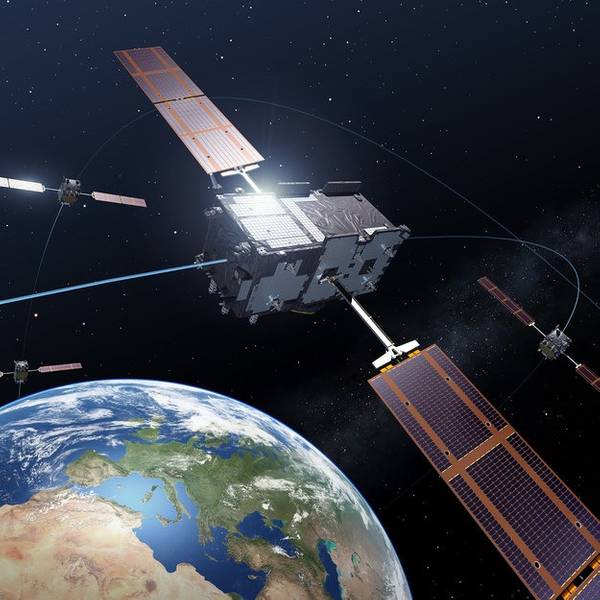
Galileo’s search and rescue system (SAR) passes first space test to begin major expansion of the Cospas–Sarsat network.
The second pair of Europe’s Galileo navigation satellites – launched together on 12 October last year – are the first of the constellation to host SAR search and rescue repeaters. These can pick up UHF signals from emergency beacons aboard ships and aircraft or carried by individuals, then pass them on to local authorities for rescue.
Cospas is a Russian acronym for ‘Space System for the Search of Vessels in Distress’, with Sarsat standing for ‘Search and Rescue Satellite-Aided Tracking’. Ground stations – known as Local User Terminals – pinpoint the source of distress calls using signals relayed by participating satellites, then alert local authorities.
Once the satellites reached their 23 222 km-altitude orbits, a rigorous test campaign began. The turn of the SAR repeater aboard the third Galileo satellite came on 17 January. “At this stage, our main objective is to check the repeater has not been damaged by launch,” explains ESA’s Galileo SAR engineer Igor Stojkovic. The following day involved sending a signal to the repeater using the UHF antenna at ESA’s Redu Centre in Belgium, then picking up the reply from our L-band antenna.”
Redu’s antenna is 20 m in diameter, so the shape of the relayed signal was captured in great detail, out of all proportion to surrounding noise.
“We can precisely measure its power, the time the relay took and so on,” adds Igor.
More detailed system testing will follow, to completely prove this new type of SAR payload in orbit.




